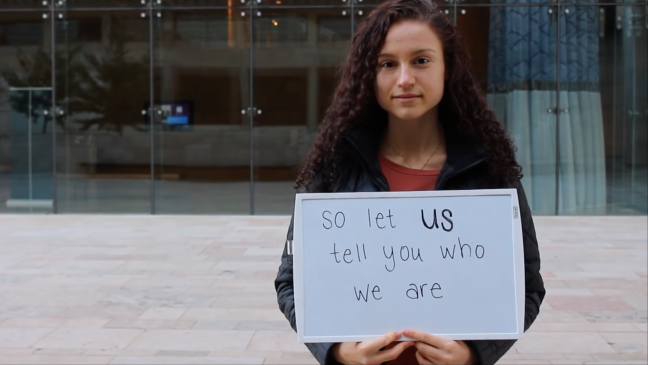It’s that time of year again — when it seems every class has assigned unrealistic amounts of readings and assignments that pile on top of one another, when you can’t realize the end of one exam and the beginning of another because they all are blurring together and when time seems to be more limited.
On top of that, the weather is becoming nicer and all you want to do is sit on Bascom Hill and take a nap, or catch up with friends while enjoying lake views.
Unfortunately, as the end of the semester nears, many students may struggle with spring fever and an intense sense of being overwhelmed with increasing school demands. You may feel exhausted while becoming less efficient and interested in completing schoolwork. You may feel like you do not have that internal motivation and passion for your work, and it may become an increasing struggle to get yourself out of bed and to class in the morning.
You might also feel frustration and negative emotions, carrying around a heavier weight on your shoulders and a more pessimistic view that what you are doing does not matter that much anymore.
Though everyone may experience some negative emotions from time to time, it is important to recognize what is unusual for you. All of these factors can interfere with your concentration, memory, reasoning, problem-solving, decision-making and ability to see the big picture.
On top of that, when you are chronically stressed, this can lead to problems in your personal relationships, which creates even more undue stress. You may be communicating ineffectively, withdrawing from others or having more conflicts or arguments. When you are around others, you might be tuned out and not there mentally, with your mind preoccupied with worries.
In order to recover from daily stressors, you need time to stop thinking about your work after you’ve stepped away from it. If you are expending mental energy thinking about work in social situations, your stress is interfering with your ability to recover.
We all go through times when we are not functioning at our best, so it is important to determine if you are truly experiencing burnout. Compare your school performance now to your performance earlier in the semester. Taking this long-term view will help you determine if you are experiencing burnout or a temporary slump.
Below are some steps to take when dealing with burnout.
Recognize that burnout is a result of experiencing chronic stress and can wreak havoc on your health
When you experience chronic stress, the demands and stressors you experience are greater than the resources, such as time and energy, that you have to deal with them. You may not be sleeping enough, overeating — having reverted to an unhealthy diet of frozen foods, junk foods and eating out — or not be eating enough, drinking more coffee and other stimulants or not exercising.
These unhealthy coping strategies develop over time and can lead to further fatigue, decrease your motivation, make you less resilient to stressful events, impair your mental reasoning and make it harder to manage multiple tasks at once. Over time, chronic stress can create health problems like digestive issues, cardiovascular problems, obesity, depression and other mental disorders.
You might notice physical precursors, such as frequent headaches, sore or tight muscles and stomach upset, or emotional precursors, such as an inability to think clearly or feeling emotionally down. To recover from burnout, you must replenish your energy and maintain your internal resources by taking care of yourself through your lifestyle. Making healthy lifestyle modifications will keep you stay motivated, be able to function well and complete your best work.
Unplug and take a break
As tempting as it may be when you are completely overwhelmed and worried about your never-ending to-do list, sometimes it is best to simply step away and come back to it with a clear mind. Technology can allow school and life stressors to seep into “me” time and social activities, so set boundaries for yourself and recognize when you need to step away. Turn off your phone and set it aside, put your papers away, close your laptop and let your mind rest and not think about school.
Relieve yourself of a preoccupation with negativity and stressors
Write down a list of things that are upsetting and bothering you that are out of your control. Realizing you cannot change a lot of things might be frustrating, but the act of simply writing them out can help. Then, take your list and throw it away. Releasing your negativity is a conscious choice and an important step in moving away from the harms of chronic stress. Affirmations can help in establishing a positive mindset for yourself as well.
Do something that rejuvenates and refreshes you, and take that seriously
This might be running on Lakeshore Path, meditating or doing yoga, listening to music, reading a book, visiting with family or hosting a movie night with friends. My personal favorite is doing something nice for someone. Sometimes, stepping back from your personal struggles and worries and helping someone, in whatever small way, can be just what you need to reset your mind. We cannot always work, and sometimes, the more we do, the more inefficient we become. So take some time away from the books to engage in an activity that is valuable to you and will excite and reinvigorate you, so that you feel recharged to tackle that next exam. It is important to not make this wasted time, but to be intentional with this leisure time so the activity combats the mental, emotional, and physical exhaustion you may be feeling.
Regularly stimulate your mind with a nonschool-related activity
Cultivating a rich nonschool life is critical to maintaining a healthy balance that will keep you going strong. Find something outside of school that you are passionate about, such as a hobby, sports or fitness, a student organization or volunteering in the community. Participating in rewarding activities outside of classes is just as important as working hard in your classes.
Talk to someone
Share how you feel with friends, family or a mentor who you trust. If your issues become serious, seek professional help from a psychologist, such as through University Health Services’ counseling services. Getting support beyond your friends and family is a sign of strength and can be immensely helpful if burnout has you feeling stuck.
Remind yourself of the end goal and the light at the end of the tunnel
Nobody said that college was easy, but they said that it would be worth it. Recognize that the stresses you are dealing with are temporary, and focus on that. See the big picture of the great things you are doing by being at college and pursuing your goals. It will all be worth it in the end.
Paria Sanaty Zadeh ([email protected]) is a third-year health professions student.




















